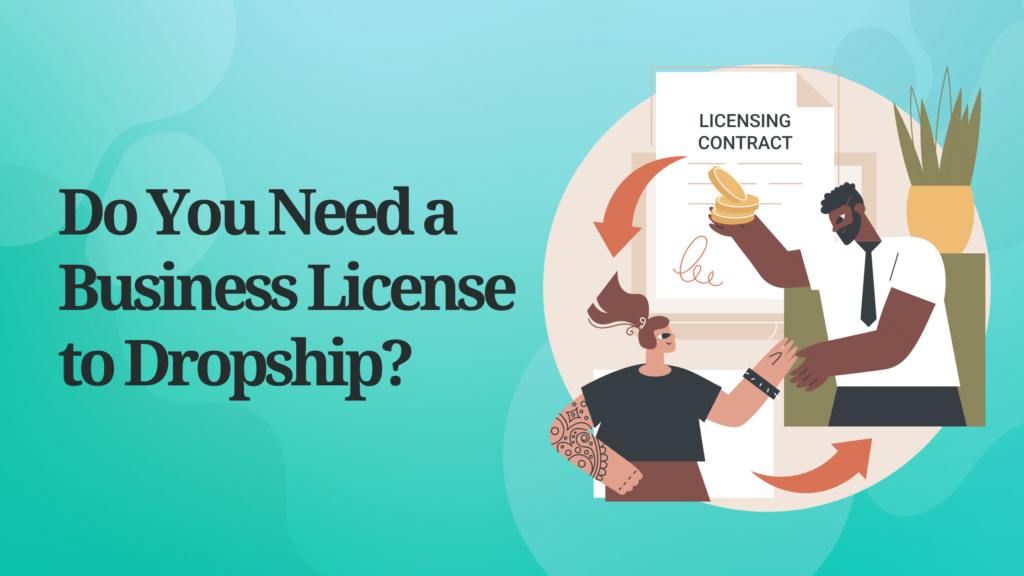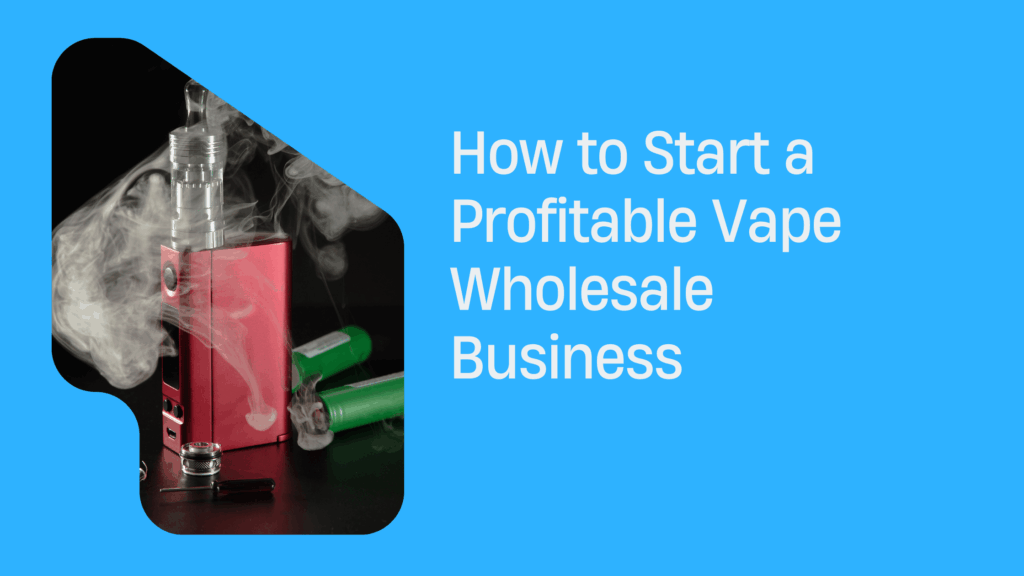Do You Need a Business License to Dropship?
Navigating the intricacies of dropshipping often involves sifting through legal jargon to determine whether a business license is obligatory. While it’s true that a seller’s permit and business license serve distinct functions—the former authorizing sales and the latter legitimizing operations within a locality—dropshippers may not always require a business license.
The deciding factors include monthly revenue thresholds, inventory storage practices, and the types of products sold. With legal repercussions like fines and operational suspensions at stake, understanding these legal nuances isn’t just beneficial; it’s a necessity for sustainability and growth in ecommerce.
Understanding Dropshipping and Its Legal Framework
Legal compliance forms the backbone of a successful business venture in dropshipping. Entrepreneurs must navigate a complex legal landscape that encompasses copyright laws, consumer protection laws, truth in advertising laws, as well as tax and licensing regulations.
A business license acts as a tangible affirmation of a dropshipper’s adherence to local, state, or federal mandates. However, the necessity of a business license in dropshipping hinges on several conditions:
- Revenue Thresholds: Dropshippers generating significant income, such as over $20,000 per month via platforms like Shopify, may be required to obtain a business license.
- Inventory Storage: Holding regulated inventory, particularly at home, can necessitate a business license due to zoning laws.
- Product Nature: Selling items that inherently require professional or government licensing, such as pharmaceuticals or firearms, mandates a business license.
Despite not being a general prerequisite for initiating a dropshipping business, acquiring a business license is advisable, especially when considering the acquisition of a sales tax license and registration with the state’s Department of Revenue. This proactive approach mitigates the risks of legal complications and potential fines.
Internationally, the complexity escalates, with tax laws, licensing requirements, and consumer protection statutes varying significantly across borders. Dropshippers must exercise due diligence in vetting suppliers to ensure product quality and legal compliance, which includes:
- Supplier Agreements: Contracts with suppliers and platforms provide a safety net against potential legal disputes.
- Policies Disclosure: Ensuring that refund policies, Privacy Policies, and Terms & Conditions are transparent and accessible to customers.
- Product Legality: Steering clear of trademarked, counterfeit, or restricted products to avoid infringement issues.
Dropshipping remains a lawful business model as long as entrepreneurs abide by the legal requirements of their locale, the platforms they utilize, and the countries they serve. This includes adhering to marketplace policies, and consumer protection laws, and ensuring accurate product descriptions and clear shipping guidelines. In essence, the legality of dropshipping is not in question, but compliance with the law is paramount for its legal operation.
The Role of Business Licenses in Dropshipping
In dropshipping, a business license is not merely a formality but a legal safeguard that aligns operations with the regulatory environment. This section will examine the role of business licenses in dropshipping, addressing federal, state, and local business licensing regulations in the US and other countries, in accordance with the special request.
- Business License Compliance: Depending on local and state regulations, dropshipping businesses are generally required to operate with a business license. This legal document legitimizes a dropshipper’s operations within a specific jurisdiction and encompasses various aspects of the business, including location, type of goods sold, and volume of sales.
- Tax and Resale Certifications: A seller’s permit or sales tax permit is indispensable in states with sales tax, enabling the collection of sales tax from customers. Additionally, a resale certificate is crucial for purchasing goods for resale without paying sales tax upfront, which is a common requirement from suppliers.
- Entity Formation and Tax Identification:
- An Employer Identification Number (EIN) is essential for tax purposes and is often a prerequisite for establishing relationships with suppliers and wholesalers.
- Forming a Limited Liability Company (LLC) is a common strategy among online sellers in the US to protect personal assets and streamline tax processes. This also facilitates setting up accounts on platforms like Shopify with a registered business name and EIN.
- In international scenarios, such as in the UK, dropshipping stores must register with HMRC within three months of starting the business, even though a business license is not explicitly required.
By navigating the legalities of business licensing, dropshippers can ensure they are not only compliant with tax laws but also positioned to foster trust with consumers and financial entities, leveraging their dropshipping ventures on platforms such as Amazon.
Key Factors That Determine the Need for a Business License
Determining the need for a business license in dropshipping hinges on several key factors that vary by jurisdiction, product type, and operational nuances. Entrepreneurs must be acutely aware of these conditions to ensure compliance and protect their ventures:
- Business Type and Location: The foundational criteria for requiring a business license in dropshipping are dictated by the nature of the business and its geographical location. In the United States, the majority of states mandate a sales tax permit or ID number for tax purposes on taxable goods, while some may also necessitate industry-specific licenses or a general business license for legal operation.
- Product-Specific Regulations: Certain products carry federal permits due to their nature and potential impact on public safety and welfare. In the U.S., products such as alcohol, animal-derived goods, firearms, and items related to fish or wildlife necessitate federal permits. Dropshippers dealing in these goods must secure the appropriate licenses to avoid legal repercussions.
- Operational Considerations: For home-based dropshipping businesses, a home occupation permit may be required, and it is crucial to ensure operations align with lease terms, property deeds, homeowner’s association rules, or local zoning ordinances. Additionally, forming an LLC can offer tax advantages, limited liability, and other benefits, underscoring the importance of understanding the specific requirements based on the chosen dropshipping platform, such as Amazon.
Dropshipping entrepreneurs must navigate these factors with due diligence to maintain legal compliance and safeguard their business interests across various markets.
Best Practices for Dropshippers to Stay Compliant
Dropshipping entrepreneurs seeking to establish a robust and legally compliant operation must prioritize the following best practices:
Legal and Licensing Compliance:
- Obtain the necessary business licenses in accordance with federal, state, and local regulations, ensuring the dropshipping business is recognized as a legitimate entity.
- Secure a tax registration number, diligently follow sales tax regulations, and pay taxes punctually to avoid legal pitfalls.
- Consult with an ecommerce attorney to fully understand legal obligations and liabilities, and to navigate the complexities of international tax laws when applicable.
Risk Management Strategies:
- Product liability insurance is a prudent investment to cover legal risks associated with product defects or accidents that could lead to lawsuits.
- Maintain meticulous records of all transactions, supplier communications, and written agreements to provide a clear audit trail and facilitate tax compliance.
- Address customer complaints swiftly and professionally, ensuring return and refund policies are transparent and comply with consumer protection laws.
Supplier and Product Due Diligence:
- Select reputable suppliers and sign clear contracts outlining pricing, shipping, return policies, and respective responsibilities.
- Research products to avoid selling items that infringe on intellectual property rights, and communicate product safety guidelines to customers.
- Ensure product descriptions are accurate and not misleading, providing transparency on any potential product limitations.
By implementing these strategies, dropshippers can fortify their business against legal challenges, foster consumer trust, and secure their financial stability.
Conclusion
Understanding when and where a business license is required can effectively help dropshippers avoid costly missteps and build a legally sound platform for their ecommerce ventures. As the legal landscape continues to evolve, staying informed and up-to-date on licensing requirements will remain an integral part of the dropshipping industry’s best practices. For those considering stepping into the dynamic world of online retail, researching these protocols is the first step towards a transparent and trustworthy relationship with customers—strengthening the foundation of any successful dropshipping business.




